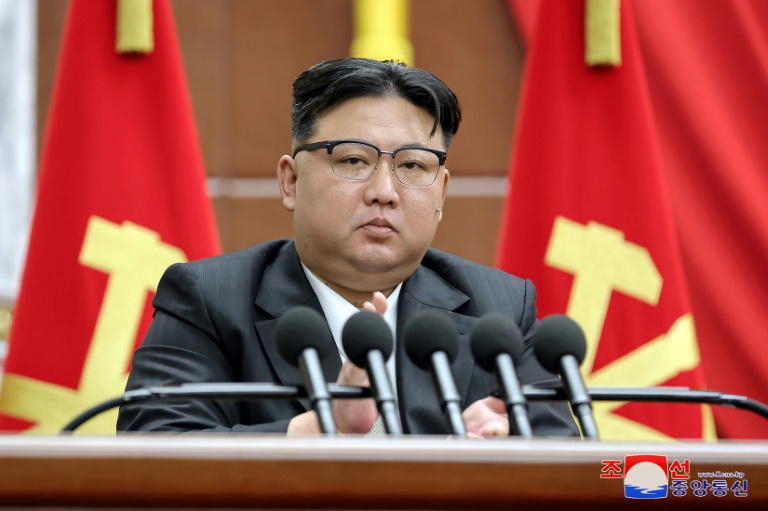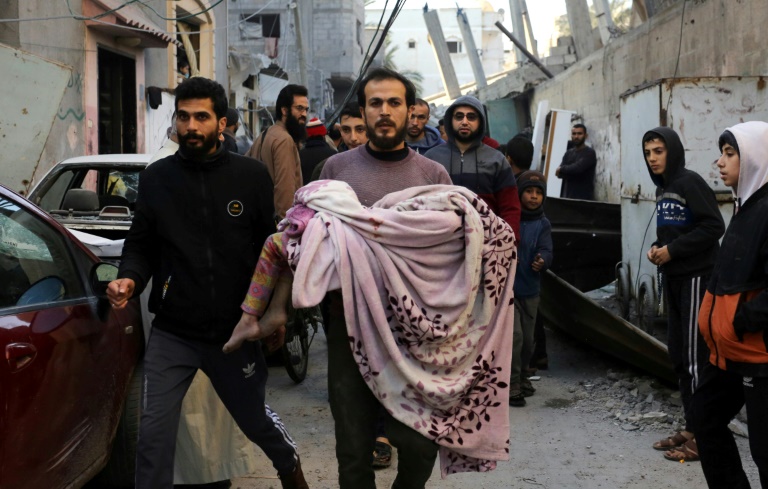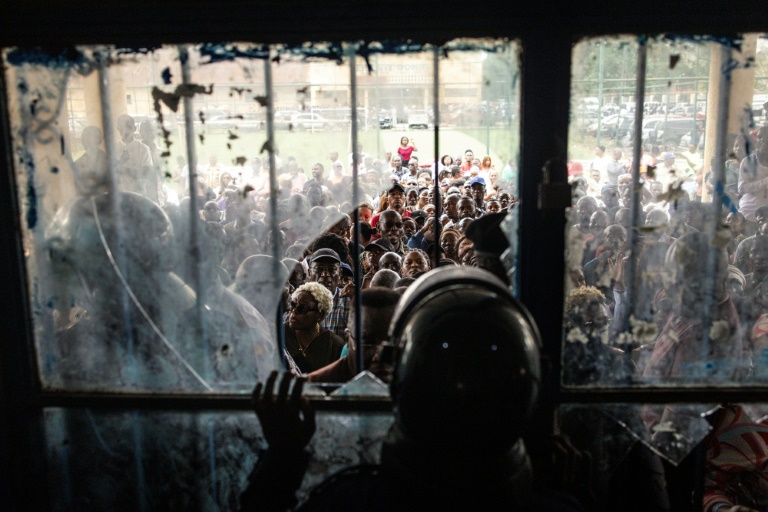North Korean leader Kim Jong Un wrapped the year with fresh threats of a nuclear attack on Seoul and orders for a military arsenal build-up to prepare for a war that can “break out at any time” on the peninsula, state media reported Sunday.
Kim lambasted the United States during a lengthy speech at the end of five days of year-end party meetings that set his country’s military, political, and economic policy decisions for 2024.
The meeting announced plans for further military development in the coming year, including launching three more spy satellites, building unmanned drones and developing electronic warfare capabilities, as well as strengthening nuclear and missile forces, according to the official Korean Central News Agency (KCNA).
Pyongyang this year successfully launched a reconnaissance satellite, enshrined its status as a nuclear power in its constitution, and test-fired the most advanced intercontinental ballistic missile (ICBM) in its arsenal.
At the meeting that ended Saturday, Kim accused the United States of posing “various types of military threat” and ordered his armed forces to maintain “overwhelming war response capability”, according to KCNA.
It is a “fait accompli that a war can break out at any time on the Korean peninsula due to reckless moves by the enemies to invade us”, Kim said.
In an effort to deter Pyongyang, Washington earlier this month deployed a nuclear-powered submarine in the South Korean port city of Busan, and flew its long-range bombers in drills with Seoul and Tokyo.
The North has previously described the deployment of Washington’s strategic weapons — such as B-52 bombers — in joint drills on the Korean peninsula as the “intentional nuclear war provocative moves”.
“We must respond quickly to a possible nuclear crisis and continue to accelerate preparations to pacify the entire territory of South Korea by mobilising all physical means and forces, including nuclear force, in case of emergency,” Kim said.
At the meeting, Kim said he would no longer seek reconciliation and reunification with South Korea, noting the “persisting uncontrollable crisis situation” which he said was triggered by Seoul and Washington.
Inter-Korean relations have deteriorated to a low point this year, with Pyongyang’s spy satellite launch prompting Seoul to partially suspend a 2018 military agreement aimed at defusing tensions.
“I believe that it is a mistake that we should no longer make to consider the people who declare us as the ‘main enemy’… as a counterpart for reconciliation and unification,” KCNA cited Kim as saying.
Kim ordered the drawing-up of measures for reorganising departments handling cross-border affairs, to “fundamentally shift the direction”.
Leif Easley, a professor of international relations at Ewha University in Seoul, said the emphasis on North Korea’s “significant military capabilities” was likely aimed at hiding the country’s poor economic achievements this year.
“Much of what state-controlled media publishes is recycled propaganda,” he said, adding: “Pyongyang’s bellicose rhetoric suggests its military moves are not only about deterrence but also domestic politics and international coercion.”
Pyongyang declared itself an “irreversible” nuclear power last year and has repeatedly said it will never give up its nukes programme, which the regime views as essential for its survival.
The United Nations Security Council has adopted many resolutions calling on North Korea to halt its nuclear and ballistic missile programmes since it first conducted a nuclear test in 2006.







